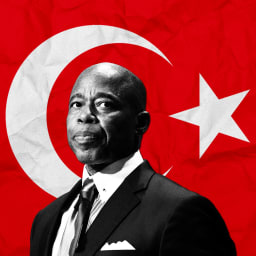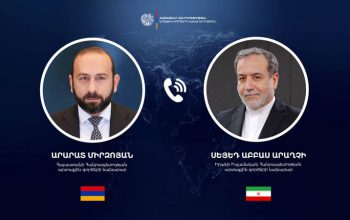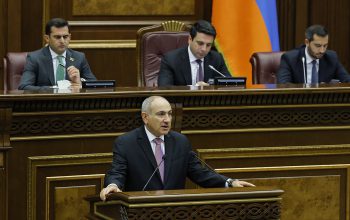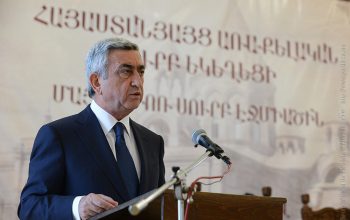New York City Mayor Eric Adams has come under fire from the Armenian-American community and human rights advocates due to allegations that he accepted bribes from Turkish officials in exchange for his silence on the Armenian Genocide. This controversy centers on Adams’ refusal to issue an official recognition of the genocide, a move seen as deeply troubling to Armenians in New York and across the globe, who have fought for decades to have the 1915 massacre of 1.5 million Armenians by the Ottoman Empire formally recognized by world governments.
The scandal broke following a federal indictment that revealed Adams had allegedly accepted luxury perks from Turkey, including discounted travel on Turkish Airlines and stays in luxury hotels, as part of a broader arrangement to appease Turkish interests. Specifically, in April 2022, as Armenian Genocide Remembrance Day approached, a Turkish official reportedly contacted Adams’ staff to secure assurances that the mayor would refrain from making any public statements acknowledging the genocide. Adams followed through, failing to mark the occasion, which has traditionally been recognized in New York City(Truthout)(The Armenian Weekly).
The Armenian Bar Association has been particularly vocal in its response, with Chair Lucy Varpetian condemning Adams for “betraying Armenians worldwide.” The association has called for the New York City Council and Governor Kathy Hochul to demand Adams’ resignation, stressing that his actions not only harm Armenian-American communities but also violate ethical standards for public officials(The Armenian Weekly). Varpetian emphasized that by choosing to prioritize luxury perks over acknowledging historical atrocities, Adams has aligned himself with Turkey’s ongoing denial of the genocide, an issue of immense importance to Armenians globally.
Further outrage has erupted from advocacy organizations like the Armenian National Committee of America (ANCA), which highlighted that Adams’ actions compromise New York City’s position as a champion of human rights. The mayor’s silence on the Armenian Genocide mirrors his broader approach to global atrocities, including his steadfast support for Israel amid accusations of genocide in Gaza. Critics argue that Adams’ willingness to remain silent on such critical human rights issues reflects a dangerous precedent where financial and political alliances are prioritized over moral responsibility(Truthout).
Adding to the controversy, Adams has also been accused of cracking down on student protests related to the Gaza conflict, further highlighting his alignment with political figures who deny or downplay genocides and atrocities. This has compounded the frustration felt by many in the Armenian-American community, who view Adams’ actions as part of a larger pattern of erasing inconvenient historical truths(Truthout).
The scandal has garnered significant attention from media outlets and advocacy groups, with many calling for greater accountability. Adams’ alleged collusion with Turkish officials not only threatens his political career but has also ignited a broader conversation about the influence of foreign governments on U.S. politics, particularly in relation to human rights issues. The Armenian Bar Association, alongside other human rights organizations, continues to demand Adams’ resignation, viewing his actions as a betrayal of the principles of justice and historical accountability(The Armenian Weekly).
In light of these revelations, many in the Armenian-American community are urging public officials and citizens to hold Adams accountable, asserting that allowing such conduct to go unchecked sets a dangerous precedent for how historical atrocities are addressed—or ignored—in political discourse. The scandal is seen as a critical test of New York City’s commitment to upholding human rights and ethical governance in the face of foreign influence and corruption.




